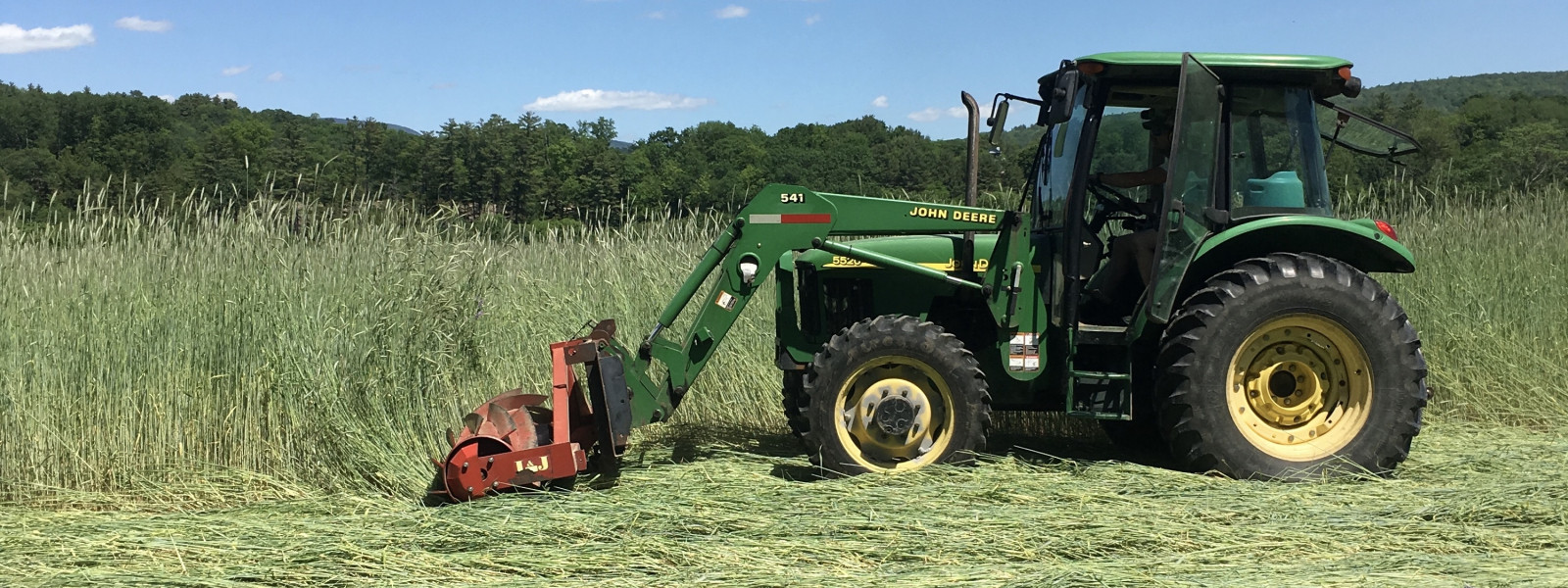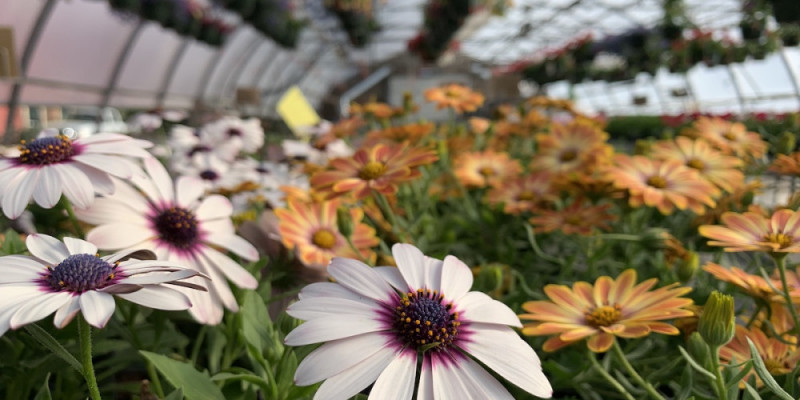
Greenhouses
Our greenhouses host a large selection of flowers, plants, and vegetable starts. Please walk around them and enjoy a full sensory experience of light, colors, fragrances, and textures! We use exclusively organic methods and products on-site.* All of our vegetable and herbs starts are certified organic.
Our greenhouse staff is happy to answer any questions you may have. Whether you are breaking ground on a new vegetable plot, putting together planters for the porch, or starting up your garden again, we can help you select plants and provide growing tips and techniques.
In and around our greenhouses, you will find:
- Native and pollinator-supportive perennial plants
- Vegetable starts
- Annual flowers
- Culinary Herbs
- Hanging baskets
- Bedding plants
- Houseplants
- Succulents
- Planters
- Soil and soil amendments
- Ceramics
- Gardening tools
There are informational sheets in a nook on the south side of the farmstand for you to take home! They include lists of New England and Local Ecotype native, pollinator-supportive, wetland, deer-resistant, shade tolerant, and other plants that we carry, as well as instructions on how to build your own worm bin and native-bee home.
_800_400_90_s_c1.jpg)

Growing Practices
Our annual and perennial flowers are grown using organic methods, and all of our vegetable and herb plants are certified organic. We do not use harmful pesticides or fertilizers on our farm.**
*Some annual flowers and perennials are bought in as growing stock and not treated organically until they arrive on our farm. However, all of the products we grow and source are neonicotinoid free, and we only purchase from suppliers that practice Integrated Pest Management (IPM).
**Do we use pesticides and fertilizers?
Yes! In fact, it is common practice to use both pesticides and fertilizers in organic production. BUT, it’s worth noting that there’s a distinction between the pesticides and fertilizers used by certified organic farms versus those used in conventional agriculture.
Pesticides are any products used to control pests such as disease, insects, and fungus, and fertilizers are used for nutrient management. Organic producers use naturally derived or plant based products (as opposed to synthetic, or chemical-based), and organic certification requires the use of products that are “OMRI-listed,” meeting USDA National Organic Program standards.
Our crop management methods help us limit pesticides, using them only when necessary. We rely heavily on crop selection, Integrated Pest Management and beneficial insects to manage pest pressure. In the fields, we focus on soil improvement methods and products—mulch, compost, reduced tillage practices, rotation, and cover cropping—to improve soil fertility, and minimize our reliance on organic fertilizers. However, in greenhouse production, these “bought-in” nutrient sources are necessary for healthy, productive plants.
